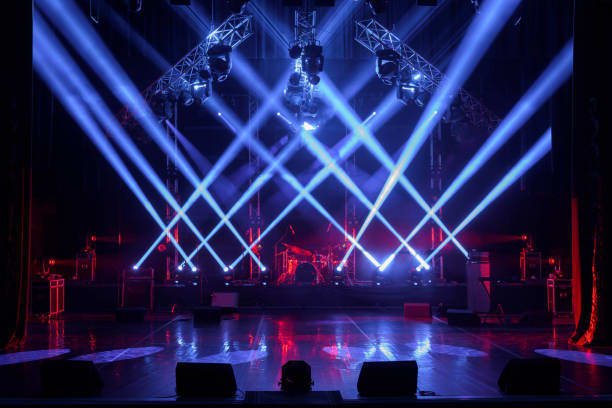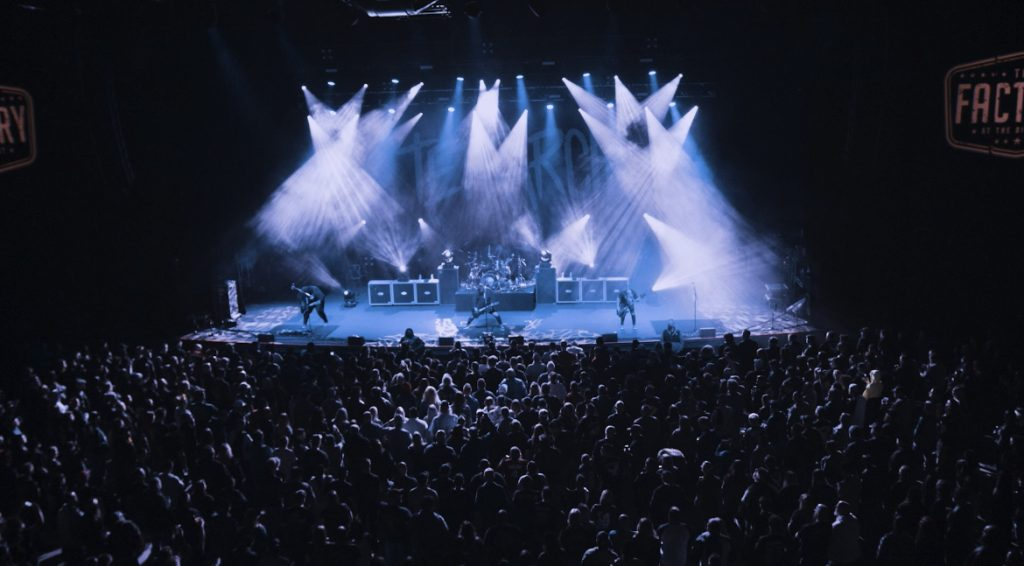Crystal-clear audio is the backbone of any successful event. Whether it’s a corporate conference, product launch, or awards ceremony, sound quality directly impacts audience engagement and overall satisfaction. Even the most visually impressive setup can fall flat without proper audio planning.
Partnering with a trusted Live Pros event production team ensures your event has the right equipment, expert setup, and professional oversight to deliver a flawless sound experience. Their expertise allows event planners to focus on content and guest experience while leaving the technical details to professionals.
Understanding the Nature of Your Event
Before selecting audio equipment, it’s important to assess the specific requirements of your event.
Venue Size & Layout – Large conference halls require more powerful speakers and possibly line array systems, while small meeting rooms can use compact PA setups.
Audience Size – The number of attendees impacts speaker placement and power output needs.
Type of Event – Corporate meetings focus on speech clarity, while product launches may require more dynamic sound for music and video presentations.
Indoor vs. Outdoor – Outdoor events require weather-resistant gear and wider sound coverage.
Core Audio Equipment Categories
Microphones
- Handheld Microphones – Great for presentations, Q&A sessions, and award ceremonies.
- Lapel (Lavalier) Microphones – Ideal for speakers who need free movement.
- Headset Microphones – Popular for high-energy presentations and performances.
- Wireless Options – Provide mobility and flexibility on stage.
Speakers
- PA Systems – Compact and portable, ideal for smaller venues.
- Line Arrays – Designed for large spaces and professional concerts or conferences.
- Powered Speakers – Built-in amplifiers for ease of setup.
Mixers
- Analog Mixers – Straightforward and user-friendly for smaller setups.
- Digital Mixers – Advanced features for professional productions, including multiple input channels and built-in effects.
Amplifiers
- Ensure the power output matches speaker requirements to avoid distortion or low volume.
Matching Equipment to Event Type
- Corporate Conferences – Clear vocal reproduction is key. A combination of lapel microphones, digital mixers, and strategically placed speakers ensures every attendee hears the speaker clearly.
- Product Launches – A vibrant audio setup can enhance brand messaging. Pair wireless handheld mics with dynamic sound systems to support music and video elements.
- Award Ceremonies – Flexible microphone setups and mixers make it easy to switch between presenters, videos, and live entertainment.
- Team-Building Events – Portable PA systems and wireless microphones are ideal for versatility in multiple settings.
Venue Acoustics and Audio Planning
The physical characteristics of your venue significantly influence sound quality.
- High Ceilings – May require stronger speaker systems to fill the space evenly.
- Wall Materials – Hard surfaces can cause echoes; soft furnishings help absorb sound.
- Seating Layout – Determines optimal speaker placement for even coverage.
Conducting a site survey before the event allows audio technicians to design a sound setup that maximizes clarity and minimizes feedback.
Integrating Audio with Visual and Lighting Systems
In professional event production, audio is rarely a standalone element. It works in harmony with visuals and lighting to create an immersive experience.
- Video Presentations – Ensure microphones and speakers are compatible with screens and projectors.
- Lighting Cues – Coordinate sound effects with lighting changes for dramatic impact.
- Multimedia Integration – Corporate event production services ensure that all technical elements are synchronized for a polished presentation.
The Role of Professional Audio Technicians
Even the best audio equipment needs skilled operation. Professional technicians ensure:
- Precise sound mixing to balance voices, music, and effects.
- Quick adjustments to adapt to last-minute program changes.
- Troubleshooting expertise to keep the event running smoothly.
Hiring a corporate event production service means you benefit from both top-tier equipment and experienced personnel who can adapt to any situation.
Renting vs. Buying Audio Equipment
When planning an event, consider whether renting or purchasing equipment makes more sense.
- Renting – Ideal for one-time or occasional events; ensures access to the latest technology.
- Buying – Suitable for organizations hosting frequent events; requires storage and maintenance.
Many event planners prefer renting through a corporate event production service because it includes delivery, setup, operation, and post-event removal.
Conclusion: Setting Your Event Up for Success
The right audio setup transforms an event from ordinary to memorable. By carefully selecting microphones, speakers, mixers, and amplifiers based on your venue and audience, you create an engaging and professional atmosphere. Partnering with a trusted corporate event production service like Live Pros ensures that every technical detail is managed by experts, leaving you free to focus on your guests and program.
For more information on creating an exceptional event experience, contact us today.
Frequently Asked Questions (FAQ)
1. What is the most important audio component for a corporate event?
Clear and reliable microphones are the foundation for effective communication. Without them, even the best speakers cannot deliver their message effectively.
2. How do I choose between wired and wireless microphones?
Wired microphones offer consistent sound quality, while wireless options provide greater mobility for presenters. The choice depends on your event’s format and stage setup.
3. Can one sound system work for both speeches and music?
Yes, with the right configuration. A versatile mixer and high-quality speakers can handle both vocal clarity and music playback seamlessly.
4. What are the benefits of hiring a corporate event production service?
You gain access to professional-grade equipment, experienced technicians, and the peace of mind that every technical aspect is covered.
5. How early should audio planning start before the event?
Ideally, begin planning at least one to two months before the event. This allows time for site surveys, equipment booking, and testing.






